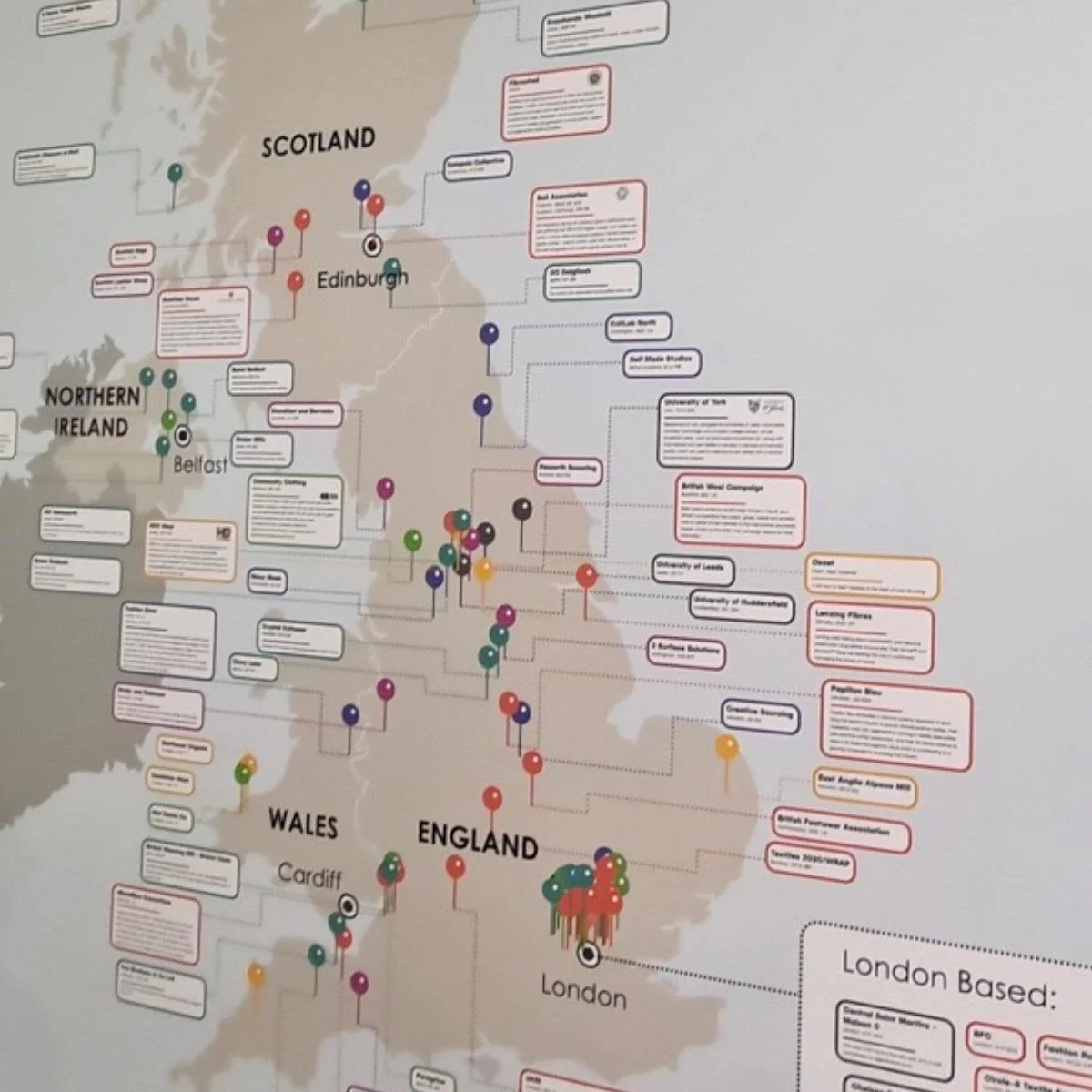A report for QHQ by AMC Newton
Overview
Not-for-profit organisation The Sustainable Angle have been organising the Future Fabric Expo in London since 2011. The show has evolved and this year they have delivered an excellent experience for anyone interested in materials. Information about this year’s event from the organisers:
10,000+ materials and solutions on display
5,000+ commercially available fabrics in fibre categories in the Curated Textiles Area
Diversification of the fibre basket
Over 250 best-practice mills and suppliers displaying their materials in their own booths. Discover their latest collections and sustainability initiatives, connect in person, and experience hands-on the materials of the future.
A brilliant visual of relevent publishing alongside the knowledge hub bookstore
New this year
New in 2023 - curated areas at this year’s Future Fabrics Expo are:
Revival of the UK Textile Supply Chain:
Supported by Alexander McQueen New for 2023, this curated display will spotlight the heritage of the UK textile supply chain and how the industry is pushing boundaries to advance ‘sustainability’ for textiles and with it reviving the entire industry: from farmers, herbal dyers, and tanners; to weavers, knitters, and artisanal businesses reviving skills and knowledge; to research and academia, innovators and pioneering entrepreneurs responding to today’s challenges and finding solutions.
Map showing UK Textile companies & organisations
Packaging Solutions supported by Canopy:
New to the Expo this year is a dedicated Packaging Solutions installation supported by Canopy. The display aims to inspire and educate the industry to rethink the materiality of packaging; our unsustainable dependency forests as feedstocks; and how we can innovate to redesign systems and shift to low-impact, circular solutions – with the goal to protect Ancient and Endangered Forests. The display showcases innovative Next Gen material solutions from Canopy’s Pack4Good initiative.
Innovation
So many innovations on display at the show this year, you are really spoilt for choice. A range of projects from those still in the prototyping phase through to commercially available. Themes which were evident:
Utilising ‘invasive species’ such as water hyacinth to make textile materials
Trans industry colloboration: for example, utilising food & brewing ‘waste’ for sources of textile raw materials
Regnerative agriculture practices
Place based, local & regional material developments
Leather alternatives
Here are 5 highlights:
Rootfull by Zena Holloway
Symbiocene Living Furniture by Peter Nasielski
Non mined gemstones by CQ Studio
Textiles that move by Motorskins
Reclaiming dyestuffs by Dyerecycle
One of best parts of visiting a show like the Future Fabric Expo is the great conversations you have. Here are some memorable moments from the show this year:
Seeing a non GMO (genetically modified organism) cotton seed (did you know GMO cotton sees are usually bright pink?) with Vanessa at Papillon Bleu
Meeting author & entrepreneur Dinie whose book ”Why doughnut ville is the best place to live” visualizes Kate Raworth’s Doughnut Economics concept for small humans
Seeing a visor made entirely out of fishing nets with Steven Cheung at Recyctex
Learning that Linen can promote a better nights sleep, from Gill Gledhill at the Alliance for European Flax-Linen & Hemp
Hearing about innovative Big Box Dyeing from Johan at Advance Denim
Seeing pineapple ‘waste’ brought to life in yarn form at with Riikka at Ananas Anam
The inspiring talks at the Future Fabric Expo did not dissapoint! One not to miss when the recordings become available is “Climate Justice” featuring Joanna Maiden of SOKO Kenya, Orsola de Castro of Estetica & Fashion Revolution, Nani Jansen Revenflow of Sytemtic Justice with moderator Bianca Pitt from SHE changes climate.
Climate Justice addresses gender and financial equity and calls for fairness, it’s the people part of sustainable development. The term is realtively new but as one of the panelists said, Climate Justice should be a more prominent part of the Climate Crisis discussion.
This panel conversation was so inpsiring, including how Soko Kenya cares for it’s people; which doesn’t end when they stop working for them. They are doing this by back dating private pensions.
Orsola de Castro talking about upcycling, said how we could ‘mine’ landfills for textile products and turn them back into useful products. What an amazing vision for addressing the horror that is landfill.
Nani talked about how only 2% of people who make clothing are making a living wage. Yes: 2 %! Also that 75% of people that make clothing are women. That is climate injustice. Nani went onto to call for more legislation, for us to define what we culturally want to protect.
Another interesting part of this conversation was about how we as a society don’t recognise that we all need time to rest and to mourn. We tend to focus on the positive and on efficiency, rather than acknowledging the hard stuff. Imagine if we did shift our society to value downtime as much as efficiency?
For more information about the show please visit :
The Sustainable Angle
“We can mine landfills for textiles and turn them back into useful products.”
Orsola de Castro


















